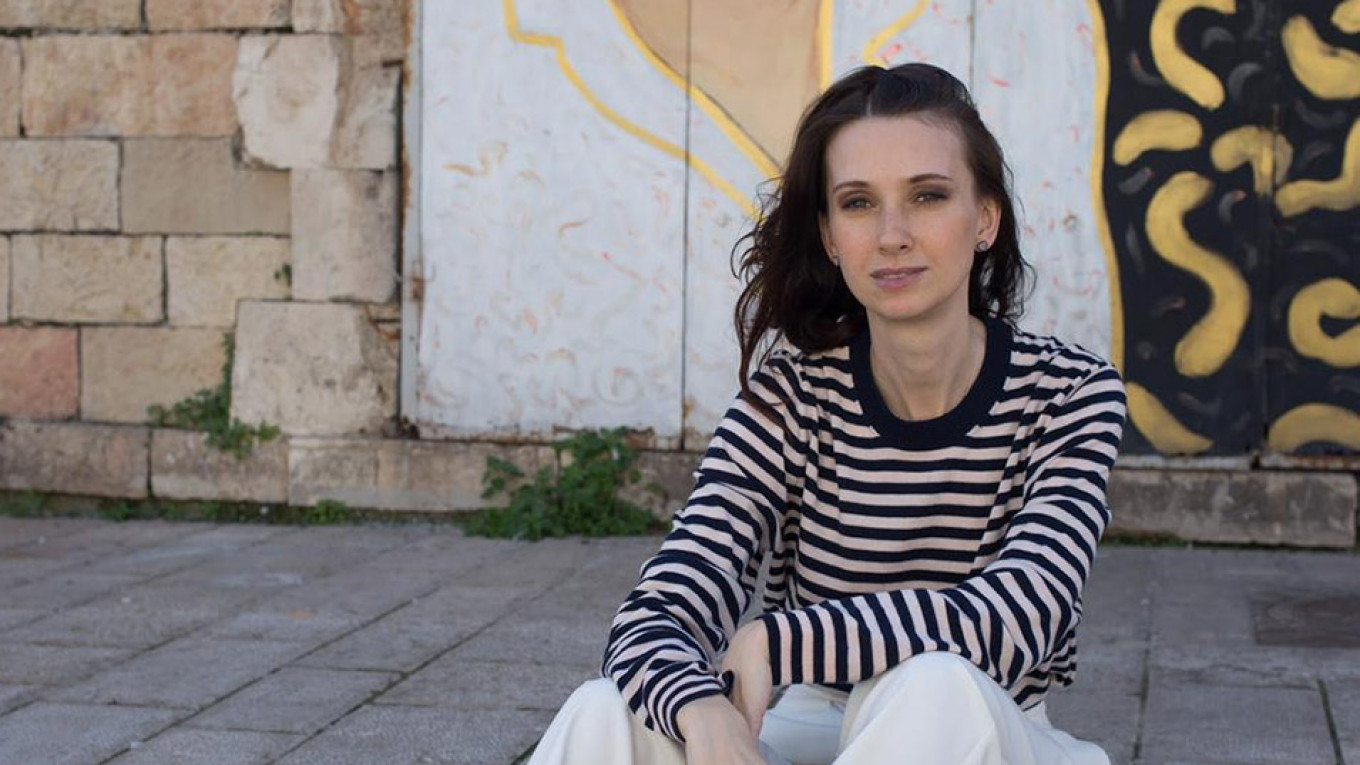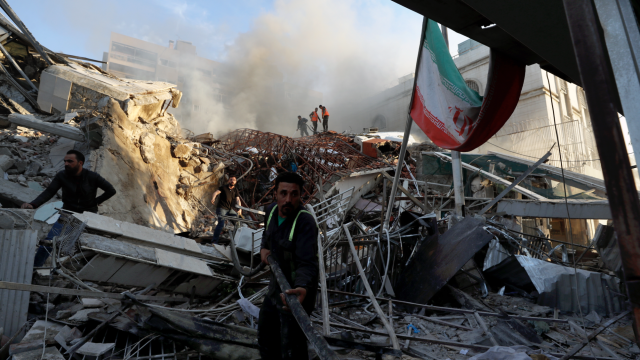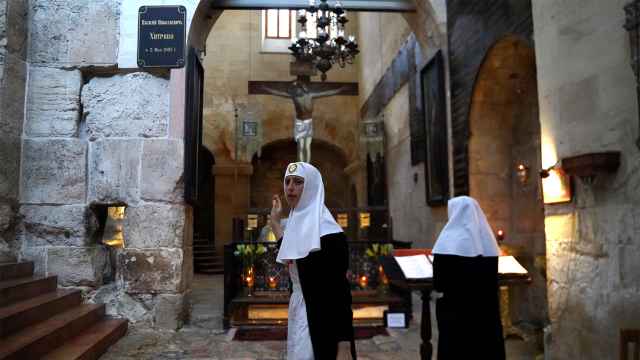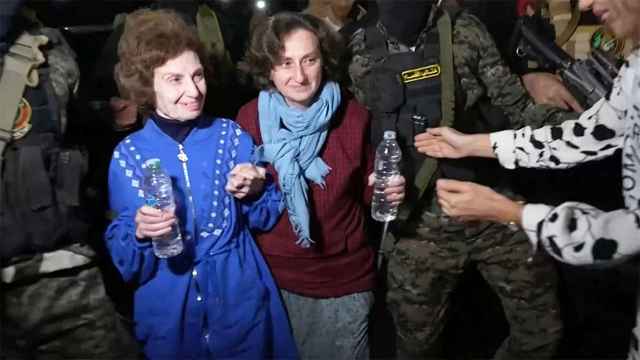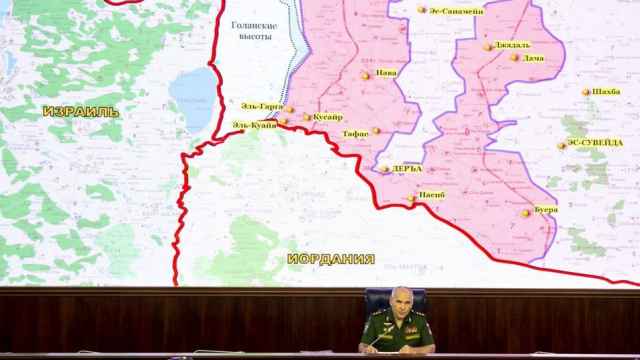Daria Immerman was taking the bus home after teaching a yoga class outside Tel Aviv last week when the shelling started.
As passengers scrambled to get off the bus, she followed the driver to take shelter in a nearby building. They heard the deafening rumble of another rocket behind them. The force of the blast knocked her to the ground and blew out a glass wall that fell on top of her.
“I never thought this would happen to me,” Immerman, who moved to Israel from Russia in 2014, told The Moscow Times via social media messenger.
Israel and armed Palestinian groups in Gaza are gripped in their fiercest fighting in years, with over 200 Palestinians and 10 Israelis dead since heavy exchanges of fire broke out on May 10.
The violence has directly affected civilian areas, as the Israeli military have launched air strikes on Gaza and the enclave’s Islamist rulers Hamas have volleyed rockets toward Tel Aviv.
For members of Israel’s sizable Russian community living in the most-affected areas, it has been a time of uncertainty and anxiety.
“Physically, I’m perfectly fine,” said 31-year-old Immerman. “But when the realization came that it actually happened, it became very scary. For the first few hours I was in shock: I was shaking, I was crying. For three or four days, my appetite and deep sleep disappeared and I would twitch at loud noises.”
Israel is home to the world's largest population of Russian-speaking Jews, with ethnic Russian Jews as well as Jews from former Soviet countries making up some 17% of the country's population. The community, which has its own distinct cultural and political identity, has been influential in Israeli society in the three decades since the first wave of mass immigration from the former Soviet Union.
Russian President Vladimir Putin has called Israel a “Russian-speaking state,” saying the two countries share a common history and extensive family ties. His only comments so far on this month’s fighting came when he called for a ceasefire and later at a meeting with the security council, when he said it “directly affects” Russia’s national security. On Thursday, he signed an order to provide for the evacuation of Russian and CIS citizens in the self-governing Gaza Strip who wish to leave.
Olga Borisova, a member of the Pussy Riot activist group studying communications at the Interdisciplinary Center Herzliya, has posted videos of her experiences in Tel Aviv as sirens warn people to take shelter during air raids.
She said that although she feels safe because of Israel’s defense systems, which block most incoming missiles, daily life amid the conflict has taken a toll on her mental health.
“It is exhausting for me to live here right now,” said Borisova, 26, by phone. “When you go to sleep, you have no idea whether you’ll have to wake up in the middle of the night and run to the bomb shelter or you’ll be able to sleep until morning.”
At the same time, she noted that what she was going through was nothing compared to what civilians in Gaza were experiencing.
For longtime members of Israel’s Russian-speaking community, it’s nothing they haven’t experienced before.
“For those who moved here one or two years ago, this is their first escalation of the conflict and of course they are more ‘shaken up.’ For the people who have been living here for a while or all their life, it’s a more usual thing, though needless to say that no one considers this an everyday part of life and no one remains indifferent,” said actress Anastasia Tsvetaeva, 39, via social media messenger.
“I’ve lived in Israel for nearly 13 years … You start taking [the escalations] as a given and just hope that the times of peace will last longer and the times of escalation remain short-lived,” she added.
Investment manager Ilia Kotliar, 39, has lived in Israel since 1996, when he enrolled in a program for high school students from the Jewish diaspora. He then served in the Israeli Defense Forces and has been in the reserves ever since.
He said he and his young family haven’t felt unsafe during the latest fighting, with the biggest changes to their everyday life being that schools are closed and there are fewer people on the streets. Israeli citizens are taught how to go to bomb shelters from a young age, he said, so children aren’t usually frightened by the sirens.
“In Israel, you quickly get used to everything, both the good and the bad,” he said.
Alexander Geifman, an animator and director who lived in Israel for 24 years and is now based in Paris, said his friends and family still in Israel are divided in their opinions over the latest fighting, with some backing Israel’s response and others criticizing Israel’s policy against Palestinians and Arab citizens of Israel.
“It’s a very difficult situation: Two people have completely different aims and they both have a claim to this land. You have two owners of one apartment and both of them are justified,” he said.
Borisova, the Pussy Riot member, has had to navigate disagreements with Jewish friends and peers whose views differ from her own. She said she understands both the Israeli and Palestinian viewpoints toward the conflict and cares about "the processes that can be made to achieve peace with the best solution for two already existing sides."
“There is a lot of anger [on social media] and you don’t know how to deal with this aggression. … I’m also not Jewish, so at times I feel like I don’t have a right to speak up because I don’t know their life,” she said.
Despite the danger and the challenges, those interviewed by The Moscow Times said they would prefer to stay here than return to Russia.
Tsvetaeva, the actress, said she had an opportunity to leave for Moscow when the air strikes started, but she chose to cancel her flight and stay in Israel instead.
And Immerman said she decided she wouldn’t live in fear.
“I pulled myself together and told myself that it was time to look at this situation not as a shock, but as an experience,” she said. “History stays in the past and it shouldn’t poison my life.”
A Message from The Moscow Times:
Dear readers,
We are facing unprecedented challenges. Russia's Prosecutor General's Office has designated The Moscow Times as an "undesirable" organization, criminalizing our work and putting our staff at risk of prosecution. This follows our earlier unjust labeling as a "foreign agent."
These actions are direct attempts to silence independent journalism in Russia. The authorities claim our work "discredits the decisions of the Russian leadership." We see things differently: we strive to provide accurate, unbiased reporting on Russia.
We, the journalists of The Moscow Times, refuse to be silenced. But to continue our work, we need your help.
Your support, no matter how small, makes a world of difference. If you can, please support us monthly starting from just $2. It's quick to set up, and every contribution makes a significant impact.
By supporting The Moscow Times, you're defending open, independent journalism in the face of repression. Thank you for standing with us.
Remind me later.



